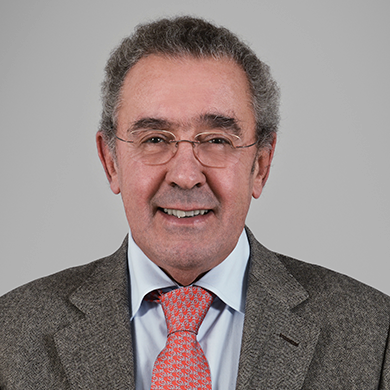Biography
Clinical Director of the Champalimaud Clinical Centre
António Parreira has been the Clinical Director of the Champalimaud Clinical Centre in Lisbon since 2011. He is also Professor of Medicine at the New University of Lisbon Faculty of Medical Sciences, where he has taught since 1996.
He graduated in medicine in 1972 from the University of Lisbon Faculty of Medicine and completed his doctorate in Medicine at the same university in 1989. From 1981 to 1990 he was a specialist in Haematology in Santa Maria Hospital. Between 1983 and 1985, as a Calouste Gulbenkian Foundation grant holder, he was a Research Fellow at the Leukaemia Unit of the Royal Postgraduate Medical School, Hammersmith Hospital, in London. In 1989 he defended his PhD thesis (Immunological Characterisation of Acute Leukaemias) at the University of Lisbon, becoming Adjunct Professor of Haematology in the University of Lisbon, Faculty of Medicine in 1990.
In 1992 he applied to become head of the Haematology Service in the Portuguese Institute of Oncology in Lisbon, ultimately assuming the direction of the service in 1994. From 1996 to 2011, he was Associate Professor of Haematology at the New University of Lisbon Faculty of Medical Sciences.
Between 1996 and 2004 he directed IPOLFG Department of Medical Oncology and, between 2004 and 2011, the Department of Haematology, accumulating responsibilities as Director of Oncological Research at IPOLFG (2008 to 2011).
He has maintained his link to FCML since 2012 as Emeritus Professor.
He is an academic member of the Portuguese National Academy of Medicine and a member of the following scientific societies: Lisbon Society of Medical Sciences, Portuguese Haematology Society, Spanish Haematology and Haemotherapy Society, European Society for Medical Oncology, European Haematology Association and American Society of Haematology.
Antonio Parreira’s scientific interests in Oncology focus on chronic lymphoproliferative disorders, namely CLL, indolent lymphomas and multiple myeloma.

